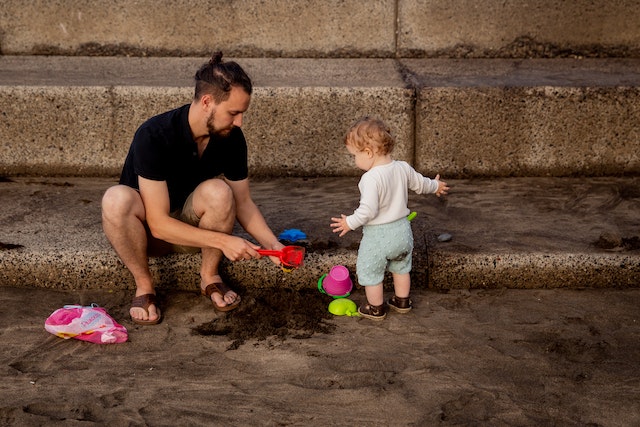
By Jassica Mendez
Personality significantly shapes a child’s outlook on school and their general disposition toward learning. Every child can improve their learning abilities with the right motivation and a solid grasp of the fundamentals. It’s best to start fostering learning and engaging with the world from a young age. That is not as hard as it may sound. Here are a few simple ways to encourage learning.
1. Read To Them
The best way to help your kid learn is to read to them. It’s always nice to spend time reading to your kid. If your kids love their bedtime stories, try replacing a fairytale with a story about preserving the environment. Occasionally change out the type of stories you read them. You can introduce them to comic books and animated children‘s books or have them pick out a book they want themselves. If they enjoy being at the bookstore, you could even take out a library card for them so they may borrow books when they wish. Is a dinosaur the protagonist in their favorite work of fiction? Get a dinosaur-related nonfiction book from the library and read it together. Set aside time every day to read aloud to one another, whether before supper, at bedtime, or in the tub.

2. Explore Their Passion
Consider what your youngster is into or excited about right now. Did they really like reading about space? Do they have a fascination with insects? If your kid loves cars, for example, you can take them on a weekly adventure and explore different forms of transportation around your city. You can take the metro, a city bus, then a shuttle bus around your area. Your kid would love to try out various rides. If you are moving soon, Master Moving Guide advises you to help them pack your trunk or moving truck. That’s an excellent opportunity to develop their spacial organization skill. A farm or environment center would be a great place to take your kid if they love animals. And if they appreciate art, discover a nearby art show. During field trips, their passions are elevated to the level of an adventure, and what we consider routine may seem extraordinary to them.
3. Make It Fun
There are always ways to make learning fun. Think about those green smoothie recipes that taste nice enough that your youngster doesn’t notice the hidden spinach or kale. Even if our children don’t find a particular topic interesting, you can trick them (just like hidden spinach in the smoothie). For example, last week, my first grader informed me that he did not want to study on the weekends when I attempted to assist him with spelling. And he was really adamant about it. Then he saw I was engaged in a word game and politely requested to join in. He became so absorbed that he forgot he was also improving his spelling skills. This way, you are setting an excellent example for your kid, and as we all know, children can pick up on their parents’ habits quickly.

4. Make It A project
If your kid enjoys dismantling items, you should gather damaged small appliances and give them a chance to do just that as part of a project. If your kid enjoys making things out of fabric and thread, let them be creative with it! Nothing beats the joy of building something with Legos or working on a family project together.
Even moving to a new place can be perceived as a family project. Besides all the activities it involves and many of which you can do together, you should take the opportunity to explain why the move and the change of school is necessary. To help them adapt easier, explain to your kids how important attending a good school is using the language they can understand. And tell your kid you think the world of them and that you have faith in them.
5. Bring Them Places
You don’t have to take them to a museum necessarily. Your youngster may learn a lot from a visit to a working post office or bakery or even just a stroll in the woods. Allow them to see the building process by stopping by several construction sites. While taking your kids to see plays, sports games, dances, and cultural events is fantastic, don’t forget that even the mundane things going on in your community might spark their curiosity and interest in learning. But be sure to be attentive and answer all questions they might have, even if they are silly, to the best of your ability.

Alt: a dad playing with his daughter outside
Caption: Kids can often find the littlest of things fascinating.
6. Give Them Incentives
The pride your kid will feel after solving a problem, spelling out a word, or attempting something new is a great payoff for the time and effort you put into promoting their education. Make sure to reward them for their hard work, even when they struggle to find an answer. These simple ways to encourage learning are enough to spark an interest in them. Just remember to let them learn at their own pace. Encourage them to keep trying even if they get a poor outcome since the learning process is more important than the solution.
Make talking about learning a regular part of your interactions with your kid. You may help satisfy their insatiable need for information by discussing your ideas and theories with them or consulting reference materials together. Ask them free-form questions about topics that fascinate them.
People might lose out on learning opportunities when they focus too much only on mathematics, reading, and sitting still. You don’t want to risk stifling your children’s natural curiosity and enthusiasm for learning. If you set the stage for learning at every turn, you won’t even have to spend a lot of time sitting down and making them write for hours.